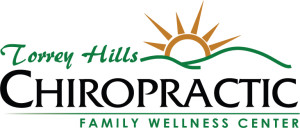Don’t Bury your Estate Plan with You
Tips to avoid loss of important documents.
 Imagine your family trying to search stacks of paper in your home to find your estate plan. In those stacks, they find nothing but old bills. They turn to your rolodex and find a business card for an attorney. They call that office in hopes it was your estate planning attorney who can guide them to your documents. That office is no longer in business. What do they do now?
Imagine your family trying to search stacks of paper in your home to find your estate plan. In those stacks, they find nothing but old bills. They turn to your rolodex and find a business card for an attorney. They call that office in hopes it was your estate planning attorney who can guide them to your documents. That office is no longer in business. What do they do now?
An estate plan is private. Your trust does not get recorded with the county. This means you need to take efforts to protect yourself and your documents so they can be found by your family or successor agents when the time comes that they need to act on your behalf.
- Keep an electronic copy of your documents. Your original paper copies may get destroyed in a fire, or lost during a move, so it is important to have electronic access to your documents. Scan all the originals into an electronic copy. Upload these documents to a secure document storage program (inquire with your attorney for suggestions). Send the electronic copy to your family and/or successor agents.
- Communication is key. You may not want to provide your family and/or successor agents with copies of your documents. If that is the case, inform your successor agents where the original estate plan is stored. Store the estate plan somewhere in your home that is both safe and easily accessible, such as a fire-proof cabinet or a secured drawer where you keep your records in your home. Also provide your successor agents with the contact information of the law firm that drafted the plan. Inquire with your law firm as to their record keeping policy to determine whether or not a copy of your estate plan will remain in their files.
- Prefer more privacy? Lock it up. Only if you have made arrangements for your safety-deposit box to be immediately accessible by your successor agents should you keep your original documents in that box. Remember, your documents will only be accessible during bank hours, and only by that person you give a key or authorization to. If this is your preference, consult with your attorney about funding your safety deposit box into your trust.
Prevent your family from a treasure hunt by providing or communicating the existence of these important documents to them.
______________________________________________________________

Christine Ellingsen is a Northern California native now practicing law as an estate planning attorney in Carmel Valley San Diego at the Barger Law Group, APC. She spent a year in New York working in the business sector before moving to Southern California to attend law school at the University of San Diego. She is happy to have started her law career in San Diego and to now call Encinitas home, where she keeps busy between exploring Coastal North County and training her new puppy.










You must be logged in to post a comment Login